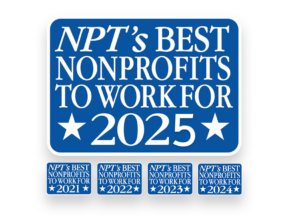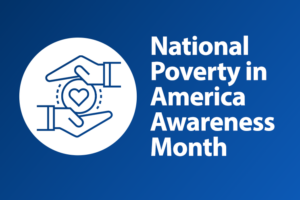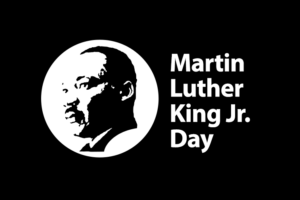Harry L. Williams, president & CEO of the Thurgood Marshall College Fund | July 26, 2019
There is a shortage of African American teachers in America
 Research has shown that young Black students actually perform better overall when they have interacted with a teacher that is African American. If the data indicates there is a positive impact on the lives of these students by having a teacher that looks likes them then we have to do all we can to try to get more African American teachers in our schools.
Research has shown that young Black students actually perform better overall when they have interacted with a teacher that is African American. If the data indicates there is a positive impact on the lives of these students by having a teacher that looks likes them then we have to do all we can to try to get more African American teachers in our schools.
This year, our Teacher Quality and Retention Program (TQRP) Summer Institute celebrates its 10-year anniversary supporting African American teachers and students, creating and supporting the talent pipeline for African American teachers is a high need in America. TQRP is the only program in the country that focuses solely on teacher recruitment from publicly-supported Historically Black Colleges and Universities (HBCUs). TQRP Fellows gather in Houston, TX for a two-week summer institute that includes an intensive series of workshops focused on HBCU Males, STEM, and new teachers.
Less than 2 percent of all public school teachers are African American males. Last year at TQRP, 32% of the fellows were African American men. We are proud to provide a forum for aspiring African American male educators to learn from, support and share experiences with peers and experienced faculty. Additionally, only 44 percent of middle school STEM teachers have STEM degrees, and TQRP recruits STEM majors and provides training and support to increase the population of minority STEM teachers in high-need schools.
A study from the Institute of Labor Economics entitled The Long-Run Impacts of Same-Race Teachers, found that African American students who had just one African American teacher in high school had far higher rates of graduation, as well as far higher rates of taking college entrance exams. Some of the main reasons for this, according to researchers, are that African American teachers can serve as mentors and that they are more likely to recommend African American students to gifted programs. Given that African Americans only make up about 12 percent of the current pool of U.S. teachers—and that African American students make up about 35 percent of the student population, the Teacher Quality Retention Program offers an innovative, proactive solution for getting more African American teachers in classrooms and promoting the long-term success of African American high school students.
Additionally, TQRP provides an effective way for recent graduates to enter the job force while giving back to the community. This is crucial because African American graduates have a far more difficult time landing jobs than graduates of any other race. While we have seen record low unemployment, a study from the Center for Economic and Policy Research, entitled A College Degree Is No Guarantee, reported that about one in every eight Black college graduates between 22 and 27 years old is unemployed. That’s roughly double the rate of unemployment for graduates of all other races.
At TMCF, we hope this program inspires other organizations, including higher education institutions, to take innovative approaches and investments to promote education, advancement, and empowerment for African American students and graduates across the board. Another major component of the program consists of providing support for those working towards earning a teaching certification, and ongoing mentoring to promote success over the first three years’ new teachers are in the classroom.
Over the past 10 years, our Teacher Quality & Retention Program Summer Institute has directly engaged with more than 600 TQRP Fellows and thousands of students from across the nation. While we know that it will still take a lot of work to get more African American teachers in more classrooms, we are proud of the steps that TQRP has taken with the support of our longtime partner Wells Fargo, to work to develop sound pedagogy, discuss and demonstrate research-based educational practice, and analyze current educational policy – all with the goal of developing the skills needed to be future teacher leaders at the institute. In 10 more years, our hope is that we will see the data points improve with more African Americans in the classroom as teachers.
Harry L. Williams is the president and CEO of the Thurgood Marshall College Fund, the largest organization exclusively representing the black college community. Before joining TMCF, he spent eight years as president of Delaware State University. Follow him on Twitter at @DrHLWilliams.
Dr. Williams will speak about TMCF’s model of corporate diversity solutions leveraging HBCU talent at the 3BL Forum at MGM National Harbor, Outside Washington, D.C. October 29-30th.
More articles like this:
African Americans are held back the most by student loan debt. Here’s a solution.
TMCF Bridging the Resource Gap: Getting Students To and Through College and into Good Jobs
Support TMCF through your employee giving program:
As TMCF’s workplace giving partner, America’s Charities can help employers design and implement a program centered on supporting TMCF’s work through workplace giving campaigns, employee fundraising, cause-focused signature programs, donation drives, matching gifts, and other employee engagement and philanthropic initiatives. Click here to request a demo and learn how we can help you do this.
As a donor, you can support TMCF by donating to them through your employer’s workplace giving program (CFC#11691) if you’re a military or federal employee participating in the Combined Federal Campaign). Payroll pledges made through employer-sponsored charitable giving programs represent a cost effective and near effortless way to support your favorite charities.

Get Resources and Insights Straight To Your Inbox
Explore More Articles
America’s Charities Named ‘Best Nonprofit To Work For’ For Fifth Consecutive Year
Washington, D.C. – April 1, 2025 – America’s Charities, the nonprofit that mobilizes the power of giving as a leading provider of volunteering, workplace giving,…
Get Resources and Insights Straight To Your Inbox
Receive our monthly/bi-monthly newsletter filled with information about causes, nonprofit impact, and topics important for corporate social responsibility and employee engagement professionals, including disaster response, workplace giving, matching gifts, employee assistance funds, volunteering, scholarship award program management, grantmaking, and other philanthropic initiatives.




